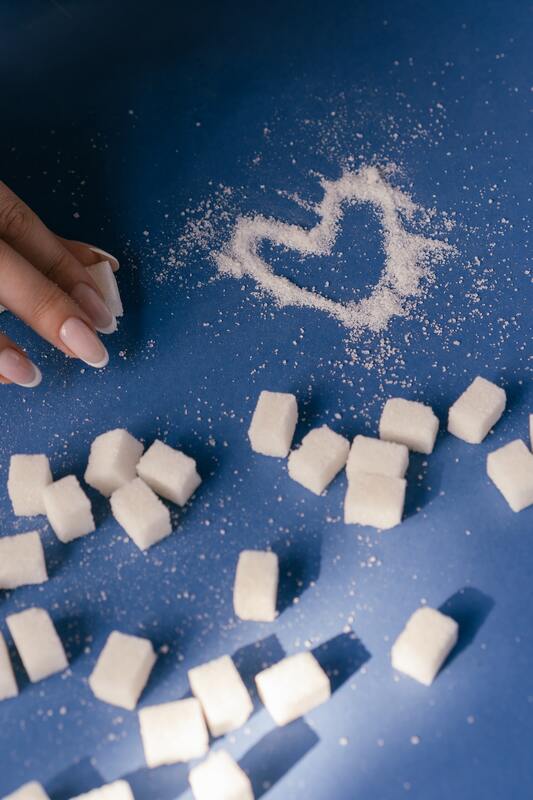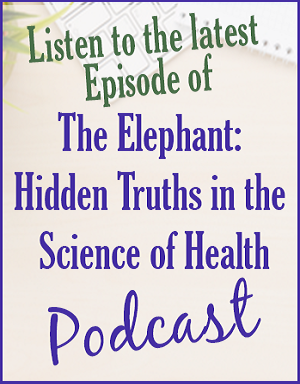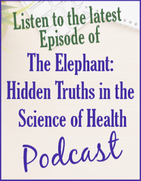Larry A. Law
Trehalose Properties
Trehalose is actually only 45% the sweetness of table sugar and it is only half the calories. It is naturally found in many plants, algae, fungi, bacteria, and insects. In 1994, the Japanese company Hayashibara Co., Ltd. developed a way to mass produce trehalose with no bioengineering (GMO activity). Now widely used in Japan to prolong food shelf life, trehalose protects foods from drying out, starch-containing products from going stale, and fruits and vegetables from discoloring. It also suppresses ice crystal growth in frozen foods, reducing food loss. Trehalose has been used as a stabilizer to keep enzymes from becoming denatured and unstable (losing their activity) because of heating or drying. In addition, several studies have demonstrated significant benefits for neurological diseases, Alzheimer's, Parkinson's, and others. Trehalose activates autophagy, the body's natural process for removing damaged components inside cells and aiding apoptosis. That is, it enhances the body's natural process for removing damaged cells. Sucrose (table sugar consisting of a molecule of glucose and a molecule of fructose) causes or contributes to: obesity, diabetes, oxidized LDL (cholesterol), increased blood pressure, enlarged fatty liver, suppressed immune system function, high triglycerides, anxiety, loss of tissue elasticity resulting in premature aging of skin, ovarian cancer, mineral deficiency, tooth decay, heart disease, osteoporosis, weakened eyesight, disruption of neurotransmitters (dopamine, serotonin, norepinephrine), myriad gastrointestinal issues, kidney disease, and more. Therefore, trehalose is a much healthier and safer substitute for sucrose. Trehalose Health Benefits Some of trehalose benefits are documented in studies and include: inhibits fat cell enlargement, inhibits progression of Type 2 diabetes and metabolic syndrome, inhibits aggregation and neurotoxicity of beta-amyloids in Alzheimer's disease, helps in kidney disease, retains moisture and therefore helps dry-eye syndrome, suppresses body odor, aids bone resorption, extends the shelf-life of other sugars, has a preservative effect on fruit, improves stress tolerance, is effective in cryopreservation of human tissue, helps fight Parkinson's disease, muscular dystrophy, erratic protein folding (like Mad Cow's disease), inhibits inflammation and strengthens cell walls (glycocalyx).
Trehalose—A Sugar For Many Species
Mushrooms contain up to 10 - 25% trehalose by dry weight. Trehalose protects organisms against various stresses, such as dryness, freezing, and osmotic pressure (fluid pressure). Trehalose has high thermostability—it does not degrade when heated, but retains its sugar properties even at high temperatures—nor does it show Maillard reaction with amino compounds (browning of food) even when heated at temperatures of 100 degrees Celsius for 24 hours. It has a wide pH-stability range and is therefore one of the most stable saccharides (sugars). Some bacteria, fungi, plants and invertebrate animals synthesize it as their primary source of energy, and to survive freezing and lack of water. Resurrection plants utilize trehalose to stabilize their cell membranes (glycocalyx) to survive extreme environmental conditions like extreme dryness and cold (cryo-preservation). Because of trehalose, they successfully revive when placed back in water. Trehalose and Clostridioides difficile (C. diff) Trehalose was attacked in a study published in Frontiers in Cellular and Infection Microbiology in 2021 which was hyped on the internet. However, that study was shown later to be an unfounded, biased attack on trehalose. All bacteria including Clostridioides difficile (C. diff) feed on sugar—all types of sugar, not just trehalose. Therefore, the study's design and results were woefully inadequate and the conclusions grossly incorrect. As Patrick Gibney, PhD, a co-author of the review and an assistant professor of food science at Cornell University, told journalists, "... other studies have since disputed the claims and said that trehalose was not responsible for a rise in C. diff infections." Gibney discussed the conflicting C. diff research in his recent review, stating that even though trehalose likely did not cause C. diff infections, more studies are needed to look at the effect of different sugars on the gut microbiome. “There could be many types of sugars that have positive prebiotic effects if they help promote the growth of beneficial microbes in the microbiome,” Gibney said, adding that scientists should examine different sugars “for their effects on the human microbiome and how those effects alter human physiology in either positive or negative ways.” Picking on trehalose was likely a paid effort to smear a great sugar which is increasing marketshare in the food industry.
Xylitol
One of the eight glycobiology sugars, xylose is an important component of the glycocalyx—the cellular membrane whereon the nearly one million cell-surface, sugar antennas serve as cell receptors. Xylitol is the alcohol version of xylose and is used as a natural sweetener and has a long list of health benefits. Despite the name, sugar alcohols do not contain alcohol or ethanol like that found in alcoholic beverages. Xylose is extracted from birch trees and is found in plums, strawberries, and raspberries. It has antibacterial and antiviral properties useful in treating middle ear infections, and reducing the risk of contracting colds, flu, and other viruses. It does this by thwarting bacterial and viral attachment to the body's epithelial (surface) cells in the mouth, throat, nose, and digestive tract. Attachment to mucosal surfaces is the key way microorganisms attach to human cells to achieve infection. Blocking that attachment is key to preventing viral and bacterial diseases. Xylitol and COVID-19 Since xylitol disrupts this binding process, it would have been a potent aid in fighting COVID-19. Dr. Fauci was fixated on only a vaccine solution to COVID-19 and refused to allow non-vaccine related information to get out to the American public. In the 1996 issue of the journal FEMS Immunology and Medical Microbiology, the dreaded C. diff bacteria was prevented from adhering to the digestive tract by a factor of 18.7 times when treated with 10% Xylitol. In the Journal of Laryngology & Otology in 2014, scientists stated, "Xylitol has anti-adhesive effects on micro-organisms like Streptococcus pneumoniae and Streptococcus mutans, inhibiting their growth." In the journal PLoS One in 2015, researchers found that xylitol was "effective in ameliorating influenza-induced symptoms related to influenza A. One version of influenza A is H1N1, also called the swine flu, which caused a worldwide pandemic in 2009. Dr. Fauci knew all about the swine flu. Because of this existing research, Fauci knew xylitol would be effective in fighting coronaviruses like SARS-CoV-2, but he chose not to mention it. Millions of people suffered and died because of his sole focus on developing money-making vaccines. He did this because there was no new, real money in using existing drugs and natural solutions. It is just criminal when you learn things like this about him. There is no question that he should be held accountable before a court of law. Xylitol Nasal Sprays Could Have Prevented COVID-19 Infections Even more outrageous is that two nasal products containing xylitol were developed during the pandemic to treat COVID-19 specifically. Both nasal sprays were highly effective in fighting COVID-19, but these approaches were dismissed by Dr. Fauci. They were relegated to the trash heap as he told the American public to go home without treatment and wait until their COVID symptoms required hospitalization. These natural solutions could have stopped COVID-19 from infecting people at the very beginning of COVID exposure. How is Dr. Fauci not in jail? (See PLoS One in November 2021 and journal Cureus in 2020 for specifics and results of treatment testing.) XLear was one of the companies creating a xylitol product. It is still on the market, but sadly cannot be advertised as a preventative treatment for COVID even though it is just that. Adding xylitol to a nasal spray has also been studied in the restoration of smell in COVID-19 patients and in controlling the amount of their viral shedding. Xylitol Is Not For Dogs One word of caution is merited for xylitol. While xylitol is remarkably safe for humans, it isn't safe for dogs. While xylitol doesn't stimulate the release of insulin in humans, it quickly floods the bloodstream of dogs with insulin, which can cause hypoglycemia (low blood sugar) and resulting death. So, just like you can't let dogs eat grapes, raisins, or chocolate, make sure you add xylitol to that list too and keep it away from dogs.
4 Comments
Diane
10/17/2023 09:14:25 am
What about steva sugar replacement
Reply
Larry Law
11/1/2023 06:56:11 pm
Hi Diane,
Reply
Martha Towner
10/18/2023 06:10:01 am
What great explanations about two sugars, thank you!! I will pass this blog on, and print it out for my friends without internet. Do you have recommendations as to where to buy these sugars?
Reply
Larry Law
11/1/2023 06:48:51 pm
Hi Martha,
Reply
Leave a Reply. |
BlogArchives
July 2024
Categories
All
|
© Angie's Option GRM. All rights reserved.








 RSS Feed
RSS Feed

